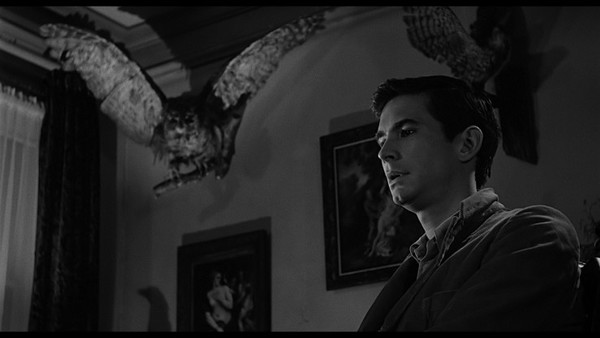How Psycho Tricks You Into Becoming An Accomplice In Murder
2. "We All Go A Little Mad Sometimes"

Anthony Perkins' performance as Norman Bates is truly superb, but while the lasting impression of it is that unnerving final shot where he's locked away in a police interview room, Perkins' performance is best exemplified when conveyed through Norman's own personality. We see him meet Marion as an anxious recluse, who supposedly spends most of his time with his mother.
Marion, undoubtedly weary of Norman, doesn't spend too long with him, but the main impression of him in this moment is that of a timid, meek boy. The fact that he has a weird hobby (apologies to all the taxidermists out there) further contributes to the sense that, while he's certainly unusual, Norman is ultimately harmless - a lonely motel owner burdened with an overprotective mother.
It's in this moment where the 'mother' entity is meant to be antagonised; Marion herself makes a remark that Norman must be getting hurt by her presence, and his uncomfortable response only further intimates her toxic influence. Clearly this is a man unwilling to accept that his mother is a negative influence, and when Marion is eventually murdered by that very figure, Norman's position as her 'carer' dictates that he safeguard 'her' interests. Remember, we don't know that they're the one and the same at the moment - he's merely a pitiful accomplice to the authoritative villain of the piece.
In a tragic (albeit slightly ironic) mirror of the opening act, Hitchcock illustrates Norman's attempts to get away with the crime. He scrubs the scene of the murder, and dumps Marion's car and body in a nearby swamp, and this is where the film accomplishes its greatest feat.